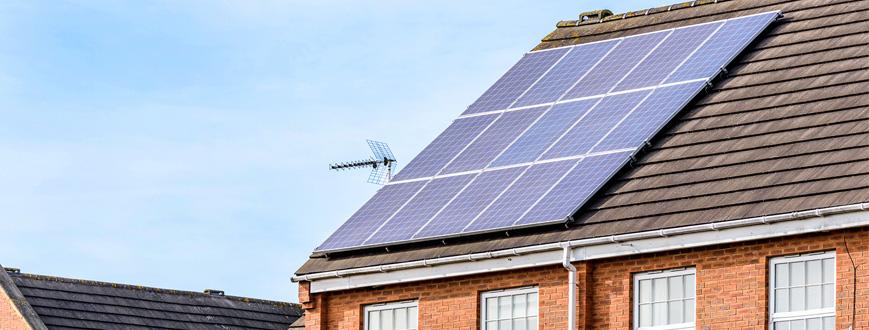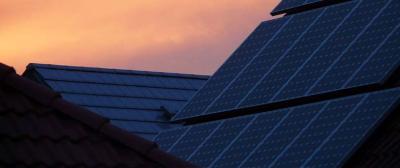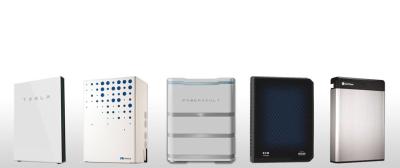Will the Smart Export Guarantee Replace the Export Tariff?

UPDATE: On 12th June 2019, Ofgem announced that the Smart Export Guarantee will replace the Feed-in Tariff from 1st January 2020. Click here to read the full article.
The Smart Export Guarantee has been announced by the Department for Business, Energy & Industrial Strategy (BEIS) as a possible replacement for the export tariff.
Under the guarantee, small-scale energy generators, including homeowners and businesses, would be paid for the energy exported to the electricity grid from their solar panels by large energy suppliers.
What was the Export Tariff?
Before looking into what the Smart Export Guarantee could involve, let's find out more about the scheme it could be set to take the place of: the export tariff.
In July 2018, the government announced that the Feed-in Tariff (FiT) would be coming to an end on 31st March 2019. It began in 2011 and made up one half of the FiT, paying those generating their own energy with solar panels for every kilowatt-hour (kWh) sent to the electricity grid.
The second part of the FiT, the generation tariff, are the payments made by the energy supplier for every kilowatt-hour of energy generated by the solar panels, whether it's sent to the National Grid or not.
With the Feed-in Tariff ending in 2019, any applications to the FiT after 31 March 2019 would be too late to benefit from 20 years of payments. However, anyone who was accepted onto the FiT before this date will continue to receive payments until the end of their contract.
The Smart Export Guarantee
Should the Smart Export Guarantee go ahead, large energy suppliers (defined as any energy supplier with more than 250,000 customers) would pay those generating energy with solar panels for every kilowatt-hour (kWh) sent to the national grid.
This price would be determined by each energy supplier, rather than the government setting one price across the board. While energy suppliers would have to set the price of their Smart Export Guarantee above 0 per kWh, the contract length is completely up to them.
Small energy suppliers (companies with less than 250,000 customers) wouldn't have to offer a Smart Export Guarantee. However, should they decide to offer one, they would have to follow the same rules as the large energy suppliers.
Smart Export Guarantee Eligibility Requirements
The proposed eligibility requirements are set to be fairly similar to those used for the Feed-in Tariff:
- Solar system must have a capacity limit of 5 megawatts (MW).
- Installed using MCS certified (or equivalent) equipment
- Be installed by an MCS certified (or equivalent) approved installer.
- All exported electricity will have to be metered using a meter that's able to provide volumes every 30 minutes.
This final point will essentially limit the Smart Export Guarantee to homes and businesses that have a smart meter. The only alternative would be a standalone export meter that's capable of exporting the volume every half an hour, however, the BEIS expect these to cost around £300, with an additional £50 a year for maintenance.
Depending on the Smart Export Guarantee tariff that your energy supplier might offer, it would take some time to make these costs back so a smart meter might be the better option as you can get one from your supplier for free.
Possible Smart Export Guarantee Tariffs
The energy suppliers will be given the power to choose their set their own payment rate for small-scale solar panel generators but the BEIS has 5 possible models.
| Tariff Type | How it Would Work |
| Export Metered and Registered Settlement | Non-variable flat rate tariff for anyone exporting energy to the electricity grid on a small-scale (homeowners). |
| Simple Variable Tariff | Suppliers would offer a tariff that's variable depending on whether the energy is being generated at day or night and during the week or at the weekend, for example. |
| Advanced Variable Tariff | A variable tariff depending on the condition of the system with an energy generation report exported every 30 minutes. |
| Variable Tariff Linked to Market | Tariff rates would be linked to the market prices at the time of the energy being exported. |
| Variable Tariff Benchmarked to Market | Similar to the 'linked' tariff but energy suppliers would set benchmark prices based on the market at time of energy exportation. |
To be eligible for any of the tariffs, the energy being generated by solar panels would have to be metered and, as mentioned, payment levels would be completely up to the individual energy suppliers.
When Would the Smart Export Guarantee Start?
The government has said that whether they go ahead with the Smart Export Guarantee or not, there will be a 'hiatus period' after the closure of the Feed-in Tariff. There would also be no backdating of payments, however, there should only be a 'short period of time' between the two tariffs.
Solar Industry Response
After the BEIS announced their plans, those in the solar industry gave a varied response to the likelihood of the Smart Export Guarantee actually happening.
Chris Hewett, Solar Trade Association
"Positively, the government again identifies the System Sell Price as accurately reflecting the market value of power spilled to the grid. However, the consultation acknowledges many of the market barriers we have raised with government and the associated costs.
"Our worry is that these may impede the ability of suppliers to offer fair and meaningful rates, even though they may wish to. Customers are freely able to switch suppliers in a competitive market so where these costs fall remains vital to developing meaningful offers."
James Court, Renewable Energy Association
"It was clear that no-one should be asked to give away electricity for free, and we strongly advocated for a market based solution and are pleased this approach has been adopted. Whilst the details around the transition from the former subsidy scheme will be important, this signal of support for the sector from Government will help our members continue to provide smarter, cleaner and cheaper electricity in the decade to come."
Rebecca Long Bailey, Labour Shadow Business Secretary
"Rather than a simple flat payment for energy exported to the grid, the government is proposing a hugely complex market mechanism in which large energy companies - notorious for overcharging consumers billions of pounds - can offer whatever sum they deem fit to households. Furthermore, participation relies on possession of a smart meter which, due to the Government's bungled delivery of the smart meter programme, many households will not have for some time.
"Such a complex scheme will only be accessible to those with the time and resources to negotiate it. Labour plans to roll out solar on the scale necessary to tackle climate change whereas this appears to be a blueprint for hobbyists, condemning solar power to the status of niche industry."
Benefits of Solar Panels
With the Feed-in Tariff no longer on the list of benefits to installing solar panels, the Smart Export Guarantee could make for a great incentive. Having said that, there are still many advantages to installing solar panels, whether the SEG goes ahead or not:
Lower energy bills
Possibly the biggest incentive for many people to install solar panels is having lower energy bills. This is because you'd be generating your own energy rather than relying on your energy supplier.
Protected from rising energy costs
Not only will you benefit from seeing your energy bills drop, you're protected should your energy supplier unexpectedly increase their costs.
Year round power generation for your home
It's a common misconception that solar panels only work on bright sunny days, however, your panels will still generate energy on cloudy days. Solar panels use daylight rather than sunlight to generate energy but will be generating higher levels of energy on clear, bright days.
Reduced carbon footprint
Solar is a free renewable source of energy that doesn't require the burning of fossil fuels so you'll be greatly reducing your impact on the environment.
Get Free Solar Installation Quotes
While there is currently uncertainty as to whether there will be a replacement to the export tariff, one thing is for sure, you can get free solar panel installation quotes using Solar Guide.
Complete one of our simple online forms and we'll use the information you provide, such as the size of your home and when you'd like the solar panels installed, to match your job with qualified solar panel installers in your local area. Each installer will then provide you with a completely free quote which you can then compare and go with the one that's most suited to you. Best of all, there's no-obligation whatsoever to go with any of the quotes.
Find local, MSC certified Solar Installers
Start your quote
Find local, MSC certified Solar Installers














